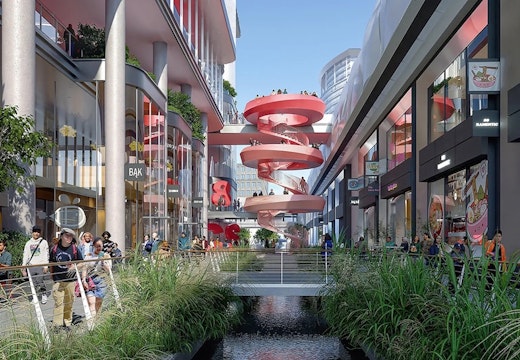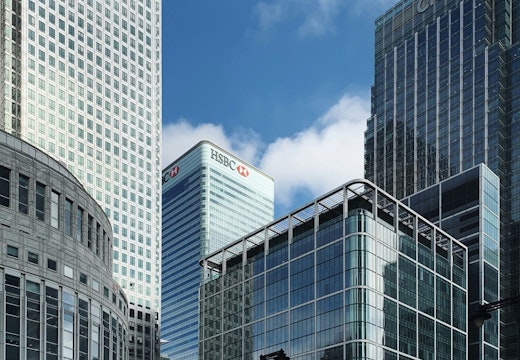Is Meta’s lease break a sign of decline in city-centre working?
The future of workplace development in city centres is once again the subject of speculation as a high-profile tech giant surrenders its lease and a new survey shows a shift to commuter towns
When a major global occupier surrenders an office lease in central London for a record sum of money without even moving in, warning signs about the future health of the city-centre workplace in the hybrid era start flashing.
When that occupier is Meta and the sum involved is £149 million – paid to developer British Land for breaking a prime lease on a building in Triton Square near Regents Park – those warning signs blink red.
There are extenuating circumstances. The tech sector is shedding jobs right now and Meta already has three other London sites including one in the same neighbourhood. Even so, it’s hardly a ringing endorsement for the real estate sector – especially as a new survey from flexible workspace provider IWG suggests a swing away from city-centre locations to ‘secondary locations’ such commuter towns.
IWG, which operates 300 offices under such brands as Regus and Spaces, asked 500 businesses how they were responding to hybrid working in terms of planning office space. The survey discovered that over half (54 per cent) now have offices or coworking spaces outside of city centres, and that 38 per cent have locations in commuter towns. Significantly, nearly three-quarters (73 per cent) have cut office space costs by moving away from city centres.
All around the world
Changing attitudes to city-centre workspace are hardly confined to the UK. In Japan, a study by the Xymax Real Estate Institute has revealed a dramatic rise in the use of satellite offices in the Greater Tokyo area by younger workers in their 20s and 30s. Siting such spaces in local districts can reduce notoriously long commute times for the Japanese salaryman.
In the US, Gerry Tierney, director emeritus of the Mobility Lab at architects Perkins & Will, has described a ‘flight to the suburbs’ after Covid-19. Tierney recently told an expert session for WORKTECH Academy members that over half of Americans now live in suburbs and that there were great development opportunities in proving more local workspace. Suburban sprawl was historically considered an environmental black mark, he said, but tech-enabled suburban offices in compact 15-minute districts could reduce the emissions associated with commuting to the city.
‘Suburban offices could reduce the emissions associated with commuting to the city’
In Australia, meanwhile, the Property Council of Australia this year took the unprecedented step of demanding that public sector workers in Melbourne return to their desks in the city’s central business district at least three days a week because the office return for Melbourne’s CBD was so sluggish and capacity was less than half full at 47 per cent.
Globally, office-return rates a trickling back up. According to Bloomberg’s CityLab, which quotes JLL data, occupancy rates are the weakest in the Americas, hovering around 50 per cent, and strongest in Asia-Pacific where offices are now three-quarters full. Europe is on a slow and steady upward curve. But as the IWG survey suggests, at least some of that office return will be to workplaces outside of the traditional city-centre business district.

The playground city?
What can be done to stop more large global occupiers cutting their losses and surrendering their expensive city-centre office leases? One answer is to rethink the urban business centre not simply as place of work with office towers but also a place of culture, entertainment and leisure – a place where people really want to be.
Already this process is underway in New York, according to Edward L Glaeser of Harvard University and Carlo Ratti of MIT. They recently co-authored an opinion piece in The New York Times describing a metsamorphosis from the ‘productive city’ to the ‘playground city’ built around pleasure.
Glaeser and Ratti also joined New York’s Mayor on a panel to find new ways to address low commercial occupancy rates in the city, advocating that developers learn from experimentation with big data, designers animate the streets and planners introduce flexible zoning in the era of flexible working.
Sensible advice and a sign that city centres aren’t giving up on their role as economic engines any time soon, but clearly Meta’s costly surrender of its lease at Regents Park in London has kept the debate about the role of our city centres in the future of work running hot.
To learn more about how large organisations around the world are managing hybrid working, go to our Hybrid Working Radar in WORKTECH Academy’s Innovation Zone, providing premium content for Academy members and partners.
To access the Innovation Zone, join WORKTECH Academy here.








